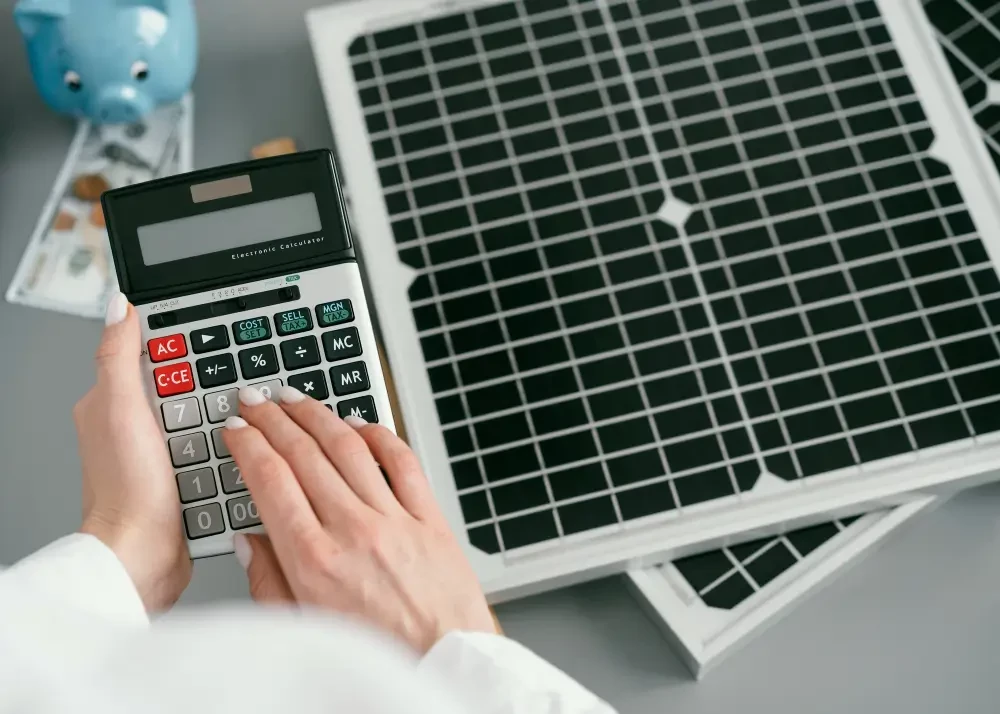0203 193 8888
0203 193 8888

As our world gravitates towards sustainable energy solutions, the appeal of solar power grows even more. However, the practicalities of costs and savings can be difficult to understand as a factor in saving money in the long term. In this article, we'll take a look into solar panel economics, dissecting the factors that determine whether investing in solar energy will save you money. From initial installation costs to long-term savings, we'll uncover the potential financial benefits and considerations associated with embracing solar technology.
Solar panels have gained significant popularity in the past decade as a promising solution for reducing energy bills and environmental impact. However, the decision to invest in solar energy often hinges on its long-term financial viability. Initially, the costs associated with solar panel installation, including equipment, labour, and permits, can be considerable. Factors such as the size of the system, location, and specific energy needs also influence the upfront investment.
Despite the initial expense, solar panels can indeed save people money in the long term. Once installed, solar panels generate electricity from sunlight, significantly reducing or even eliminating reliance on traditional utility providers. This translates to substantial savings on monthly electricity bills over the lifespan of the solar system, which typically ranges from 25 to 30 years.
Furthermore, many governments and utilities offer incentives, rebates, and tax credits to offset the upfront costs of solar installation, further enhancing the long-term financial benefits. Additionally, as solar technology advances and becomes more efficient, the cost of solar panels continues to decline, amplifying the potential for savings over time.
When evaluating the long-term financial impact of solar panels, it's essential to consider not only immediate savings but also factors like inflation and rising utility rates. In many cases, investing in solar energy proves to be a wise financial decision, offering both economic and environmental dividends for years to come.
Investing in solar panels not only reduces your carbon footprint but can also lead to significant long-term savings on your energy bills. Here are some effective money-saving tips to maximise the financial benefits of solar panel ownership:
Selecting the appropriate size solar system for your energy needs is crucial to maximising savings. A system that is too small may not cover all your energy consumption, while one that is too large could lead to unnecessary expenses. Work with a reputable solar installer to determine the optimal size based on your household's energy usage patterns.
Net metering is a process where you can sell excess energy generated by your solar panels back to the grid, offsetting your electricity costs further. With net metering programs, you can earn credits for the surplus energy produced during sunny periods and use them to offset energy drawn from the grid during cloudy days or nighttime.
Installing a home energy monitoring system allows you to track your energy consumption in real time and identify areas where you can reduce usage. By being mindful of your energy habits, you can make adjustments to optimise efficiency and further minimise your reliance on grid electricity.
Routine maintenance of your solar panels ensures they operate at peak efficiency, maximising energy production and savings. Keep the panels clean and free of debris, trim any overhanging branches that may cast shadows, and schedule periodic inspections by a professional to address any issues promptly.
Many financing options are available to help make solar panel installation more affordable. From solar loans to leasing arrangements, research different financing options to find the one that best fits your budget and financial goals. Some options may require little to no upfront investment, allowing you to start saving on your energy bills immediately.
Federal, state, and local governments offer various tax incentives, rebates, and other financial incentives to encourage solar adoption. Research available incentives in your area and take advantage of them to reduce the overall cost of installing solar panels and accelerate your return on investment.
In summary, investing in solar panels presents a great opportunity to reduce environmental impact and enhance financial savings. Through solar energy, homeowners can significantly diminish their reliance on conventional energy sources, shrink their carbon footprint, and ultimately lower long-term energy expenses. However, realising the full financial benefits of solar panel ownership necessitates careful planning, including selecting an appropriately sized system, capitalising on available incentives and financing options, and adopting energy-efficient behaviours.
Back to Blog